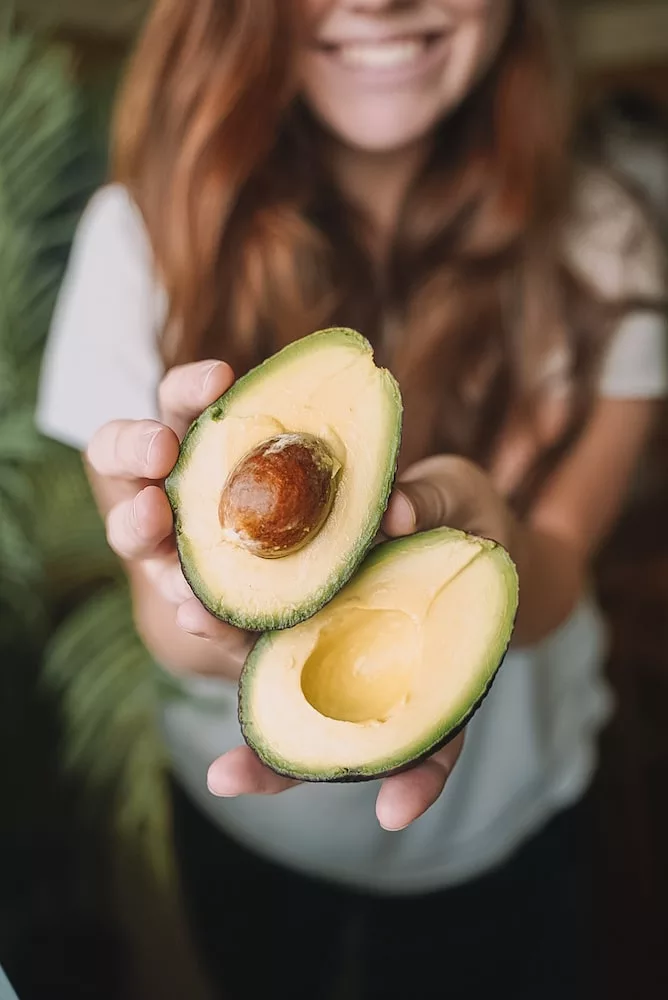Have you ever wondered what will happen to your body when you eat avocado? Find out below the possible effects that eating avocados may have on your health.
Avocados have a pretty recognizable character with their large seed surrounded by a freshly smooth and silky green flesh that is shielded by a rough outer skin. Originating in Mexico and Central America, they are now grown all over the world, including in North America. Traditional dishes from Mexico, Central America, and South America feature these fruits in various iterations, such as guacamole, salads, tacos, and more. In terms of superfoods, avocados are in a league of their own due to the diversity of nutrients they provide.
In recent decades, avocados’ popularity as a food item has exploded. When compared to other fruits, these exceptional ones have the highest fat, calorie, and protein content. They also contain significant amounts of nutrients like fiber, potassium, magnesium, B vitamins (including folate), vitamin E, and carotenoids. It’s not surprising that its popularity has skyrocketed around the globe.
What happens to your body when you eat avocados
1. Alleviates inflammation
Avocados are loaded with beneficial nutrients like vitamin C, vitamin E, and the carotenoid lutein, which all work together to fight free radicals and inflammation in the body. All of these compounds have been linked to enhanced cognitive performance alongside protective effects against oxidative stress and chronic disease. It also contains oleic acid, which has been shown to have beneficial effects against inflammatory-related diseases and to stimulate the mechanisms of certain immune-boosting cells.
2. Decrease your chances of getting heart disease
Adopting a diet high in protective nutrients like potassium, magnesium, fiber, folate, monounsaturated fats, polyphenols, and antioxidants can greatly reduce the likelihood of developing cardiovascular disease. Avocados have a high potassium content and a relatively low sodium content, both of which contribute to lower blood pressure. As a result, eating avocados can help reduce the risk of having a heart attack or even a stroke.
3. Improves gut health
Dietary fiber is important for gut health because it encourages the growth of good bacteria. The fiber content of avocados is high, with about 14 grams per fruit. That’s equivalent to nearly half of the recommended daily intake of fiber. Remember that all foods high in fiber, such as fruits, vegetables, nuts, and seeds, are beneficial to digestive function. Eating a wide variety of fiber-containing foods, not just avocados, is the most important thing you can do for your digestive health.
4. Keep your weight in check
If you’re trying to lose weight, eating an avocado every day might help. It have a high calorie count, but they are also packed with nutrients and help promote satiety. This is due to the high fiber and healthy fat content that avocados contain. Fiber has been shown to make you feel fuller, while monounsaturated fats, especially oleic acid, can prevent fat storage when eaten in the right amounts
5. Nourish and moisten the skin.
Most fruits have a lot of sugar, which the body processes quickly. On the other hand, avocados have a lot of oleic acid, which is the same kind of fat that’s in both avocado oil and olive oil. Because the skin is a metabolically active organ, it is able to use fatty acids such as oleic acid to produce a barrier against the loss of moisture. Antioxidants in avocados, such as vitamin C, can also help keep your skin looking young by reducing the appearance of wrinkles. Moreover, the carotenoids they contain can shield the skin from the sun’s rays, resulting in a younger, healthier appearance all over.
6. Keep your eyes healthy
Avocados contain the phytochemicals lutein and zeaxanthin, which are found naturally in the eyes. They can soak up light waves that would otherwise damage your eyes. Avocados are a good source of monounsaturated fatty acids, which aid in the absorption of fat-soluble antioxidants like beta carotene. Therefore, eating more avocados might help prevent age-related macular degeneration.
They taste buttery and slightly nutty, and they’re full of healthy nutrients. Avocados are versatile fruits that can be used in both sweet and savory dishes. You can spread avocado on toast, use them to make sweet treats, or even put them on sandwiches. You can throw them into almost anything you’re cooking. But keep in mind that your diet as a whole is the most important factor in your health and in warding off illness. Therefore, rather than focusing on the benefits of specific foods, it is more beneficial to have a diet rich in variety.
Disclaimer: This is for informational purposes only.
Did you find this helpful? Let us know in the comments.
Source: Healthline
You can also visit our Facebook and YouTube pages to know more about plants and their health benefits.
You might also like:








